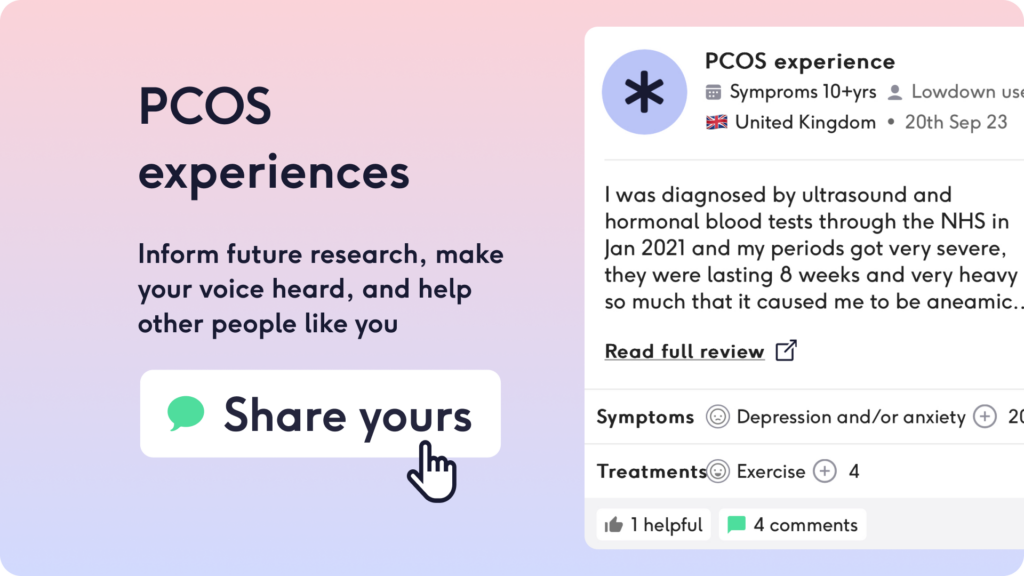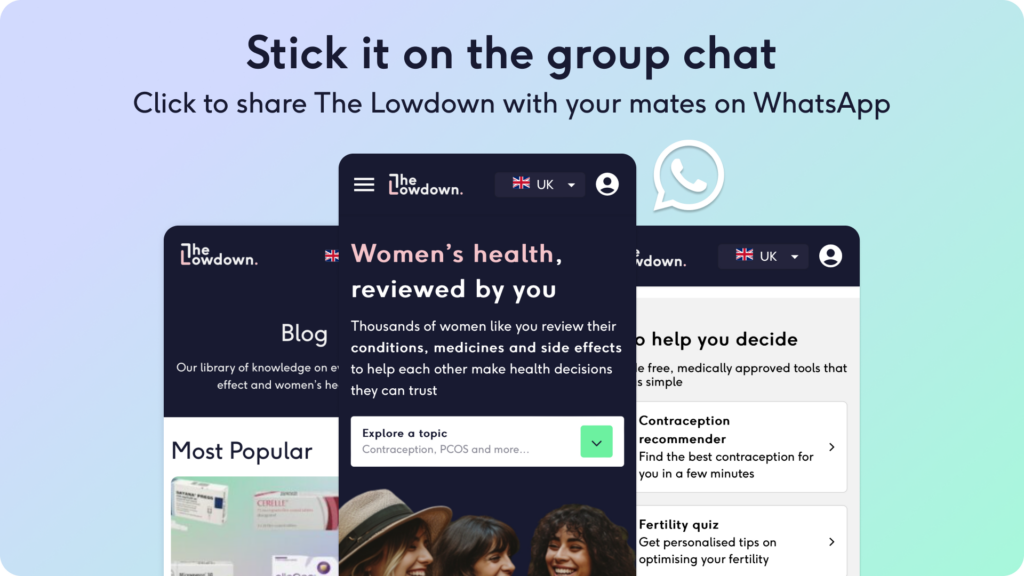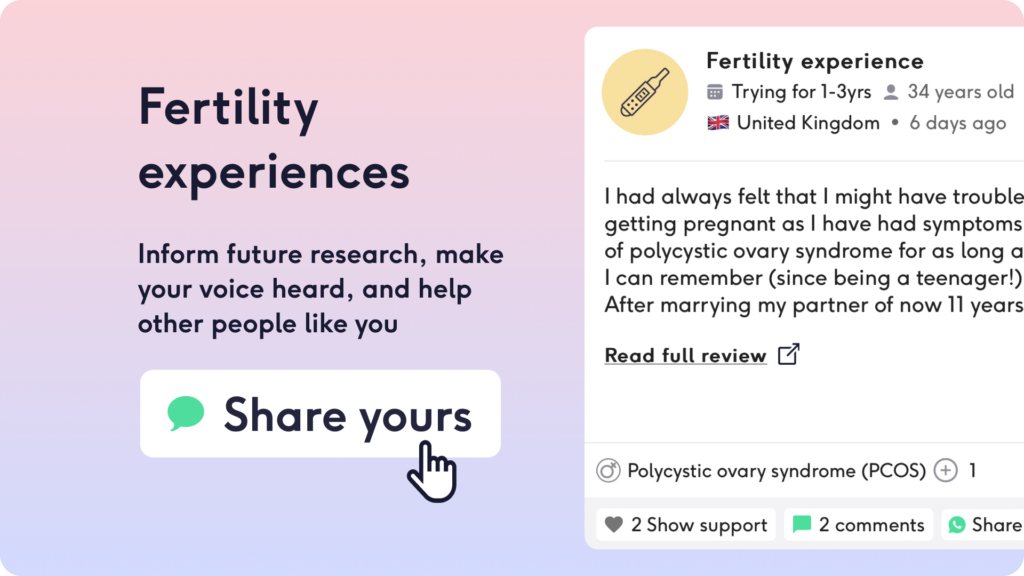
What is PCOS (Polycystic ovary syndrome)?
What's the lowdown?
Polycystic ovary syndrome is caused by a hormonal imbalance that interferes with normal ovulation.
This can disrupt your period, cause problems for trying to conceive and lead to weight gain, acne and oily skin.
Polycystic ovary syndrome (PCOS) affects an estimated 8–13% of women in their reproductive years
✔️If you think this blog sounds informative, make sure to check out our newsletter for more:

What is PCOS? How many people have it?
Polycystic ovary syndrome (PCOS) is common. In fact, according to the Royal College of Obstetricians and Gynaecologists (RCOG), it is thought to affect between 2 and 26 in 100 women, depending on the diagnostic criteria used.
Shockingly, 70% of people remain undiagnosed.
PCOS is essentially a hormonal imbalance. The ovaries don’t release an egg each month, so it often causes skipped periods. The body is also in a hyper-androgenic state, which means there is more testosterone in the blood than usual which can lead to acne, hair growth on the body, oily skin, hair loss from the scalp and weight gain.
People with PCOS can experience difficulty conceiving and if the hormonal imbalance worsens over time, longer term problems can occur such as diabetes and womb cancer.

What causes PCOS? The lowdown on androgens
The cause of PCOS is still not known, but in order to diagnose the condition, 2 of 3 criteria need to be met (The Rotterdam Criteria):
- Blood tests that show androgen (testosterone) excess and/or symptoms of this such as excess body or facial hair growth (hirsutism)
- Irregular periods;
- Polycystic ovaries on ultrasound;
Hyperandrogenism (androgen excess) is thought to be the main reason why PCOS happens. It acts on the ovaries to prevent ovulation and the effects on the rest of the body cause symptoms such as acne, oily skin, scalp hair loss and hirsutism.
Even though testosterone is thought of as a male hormone, women actually produce 3-4 times more testosterone than oestrogen in the body. But we’re still talking about small amounts in the blood by comparison to a man. It doesn’t take a lot extra in the blood to shift the balance towards an androgen excess.
Does it cause any other health risks or issues?
Longterm, PCOS is linked to heart and circulatory disease, high cholesterol, fatty liver, diabetes and infertility. Having PCOS doesn’t necessarily mean that any of these problems will develop, but it is something that needs to be kept in mind and monitored.
Womb cancer is a potential long term risk with PCOS. The main risk is caused by not having regular periods. This can be mitigated by either being on long term contraception, or every 12 weeks, having a progestogen medication to bring on a period. This is mainly for people who have very sporadic periods. Not having a period with PCOS may seem to be a good thing, but the effect of not having a bleed every month is what can lead to cancer.
PCOS can also impact on future pregnancies with increased risks of premature delivery or miscarriage, diabetes and high blood pressure in pregnancy.

Main symptoms of PCOS
Many people with PCOS struggle with irregular periods, tiredness, fatigue, bloating and acne. Other features of hyperandrogenism include hair loss from the scalp, hair growth on the face and body, and weight gain, especially around the middle.
Lowdown users also reported symptoms like high sugar cravings, patches of dark skin pigmentation and difficulty getting pregnant.
How can you tell if you have PCOS
Not everyone can tell they have PCOS based on their symptoms alone. If you have possible symptoms of PCOS such as irregular periods, the most important thing to do is have a blood test which is looking for signs of hyperandrogenism in the blood. A pelvic ultrasound to look for polycystic ovaries is another way PCOS can be identified, but remember you need 2 out of 3 Rotterdam criteria, so polycystic ovaries on their own are not enough to make a diagnosis of PCOS.
Talking to a healthcare professional about PCOS
Before seeing a GP, it’s a good idea to come prepared. Start tracking your periods so you know when they happen. Don’t forget to add on symptoms you are experiencing, such as light bleeding, heavy bleeding, cramps, mood swings, acne etc.
Once you’ve done this for 3 months or more, arrange to speak to a GP. This way, when you are asked about your symptoms, you have a solid amount of information about your symptoms that you can share.
Apps can be helpful for this, and some will even allow you to print out a report to show your GP.
How can our telemed service help ahead of going to the GP?
The Lowdown doctors can give you time to talk about your symptoms. They can then offer suggestions for symptom control, including hormonal treatments, or point you in the direction of helpful resources or how to get the help you need from your GP.
What happens after you get diagnosed?
Lots of people who leave their PCOS experiences on The Lowdown say they’re left in the dark after getting their diagnosis, or told to come back to their GP when they want to get pregnant. But this shouldn’t be the end of your care.
Everyone with PCOS needs:
- Annual blood checks for diabetes, cholesterol and blood pressure
- Endometrial (womb lining) protection – either with contraception, like the combined pill or hormonal coil which keeps the lining of the womb thin, or by having a withdrawal bleed brought on by taking progesterone pills every 3 months (if periods are very irregular)
- A support network such as The Lowdown: read PCOS experiences and share your PCOS experience or a charity such as Verity.
- To maintain a healthy weight, regular exercise and a balanced diet high in unsaturated fat and fibre, stop smoking, and reduce alcohol intake.
For those trying to conceive:
- Referral to a fertility specialist early to discuss options such as medication (metformin, clomid) or interventions (ovarian drilling, IVF)
For those who are pregnant:
- Ensure that your midwife is fully aware of your PCOS diagnosis so you can have a gestational diabetes check. This is a type of diabetes that develops when pregnant and generally goes away when the pregnancy ends.
While PCOS isn’t curable, it can be managed. Don’t be afraid to access help and support if you need it. Early diagnosis means earlier intervention to keep you healthy for the long term.

Got more questions about PCOS? We got you
Our medical review process
This article has been medically reviewed for factual and up to date information by a Lowdown doctor.






